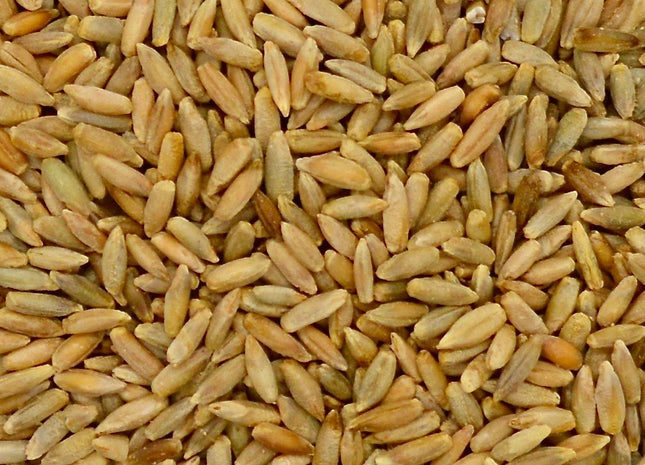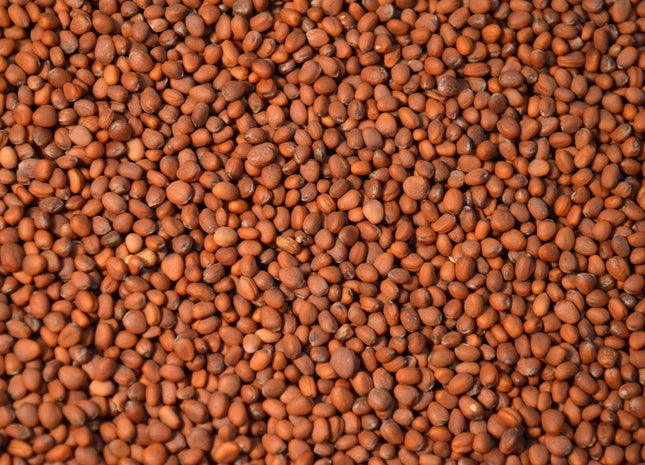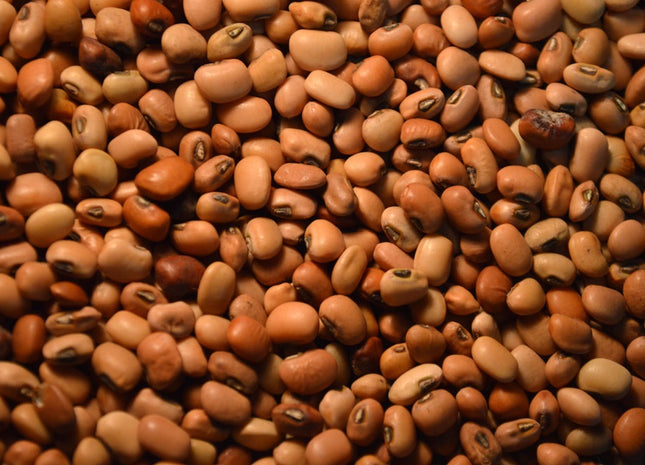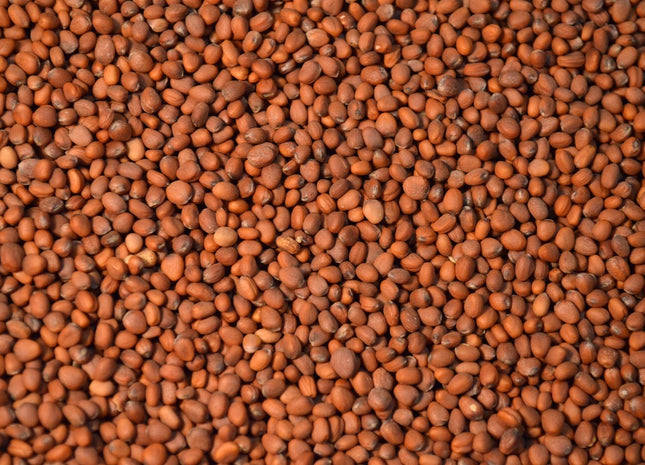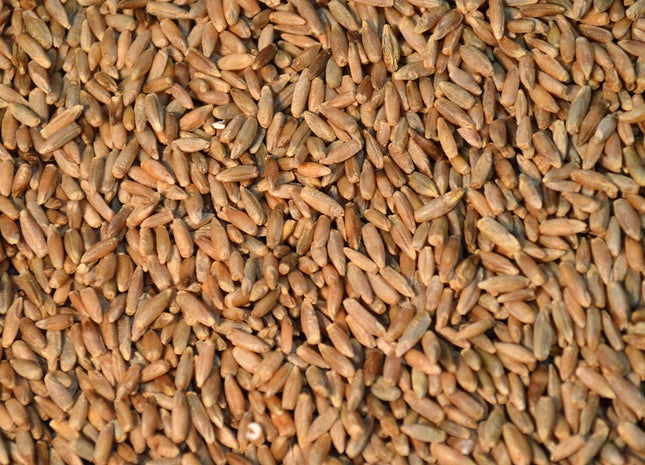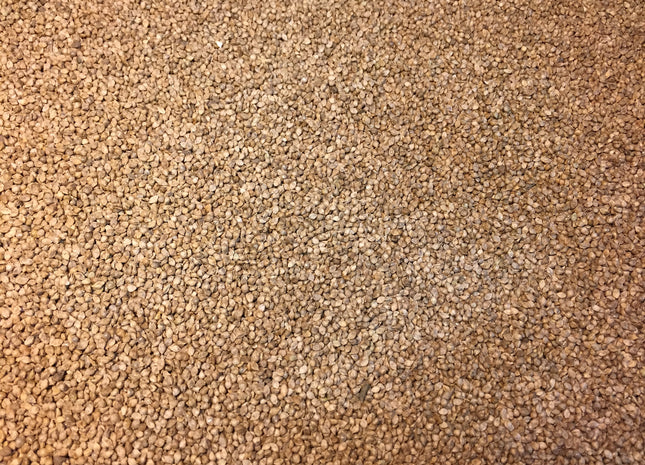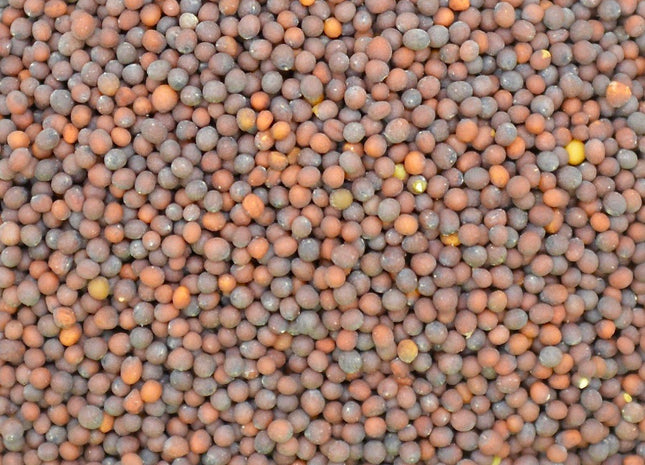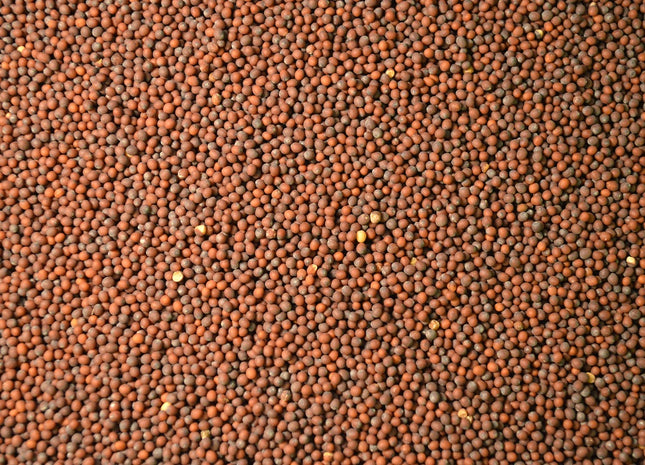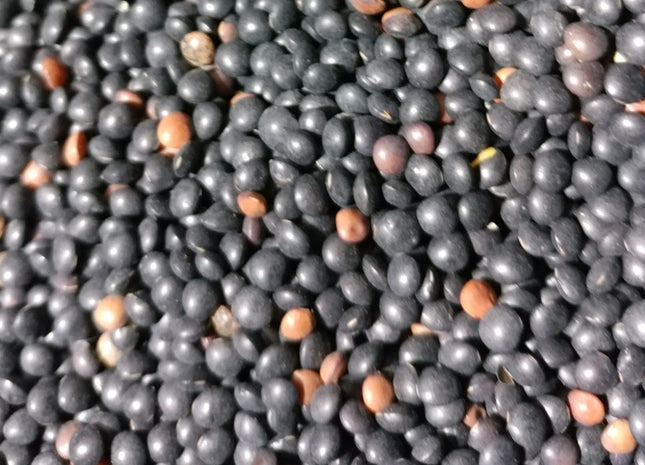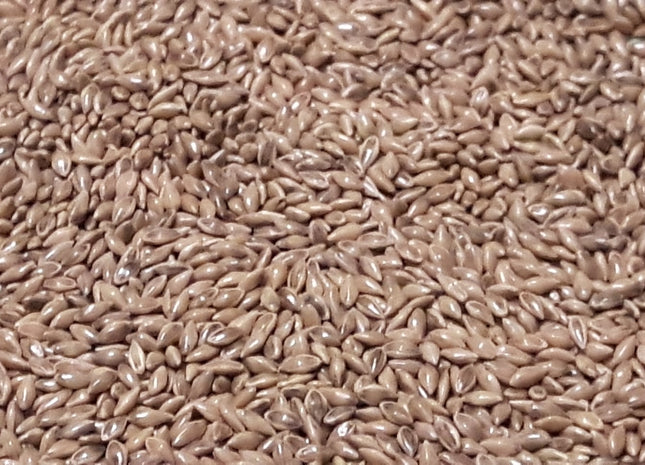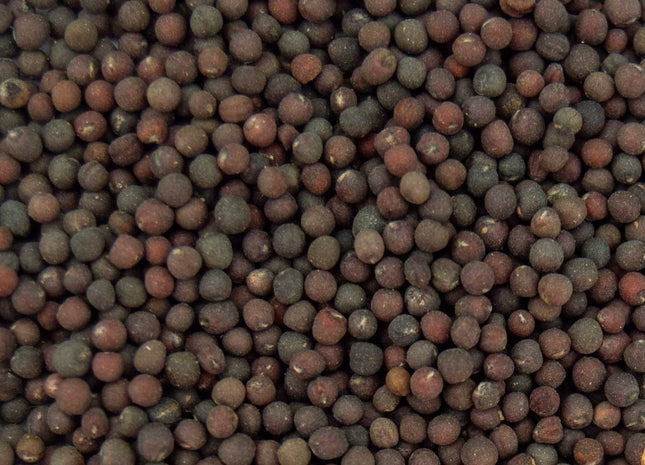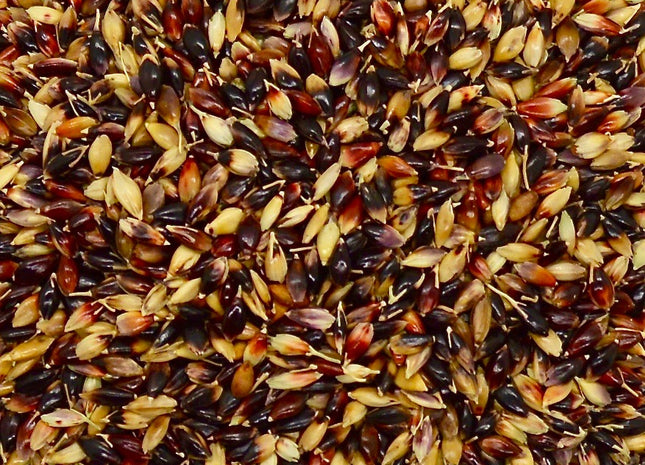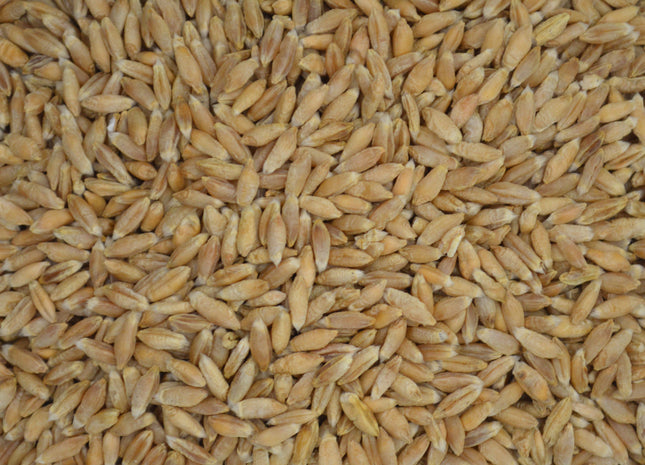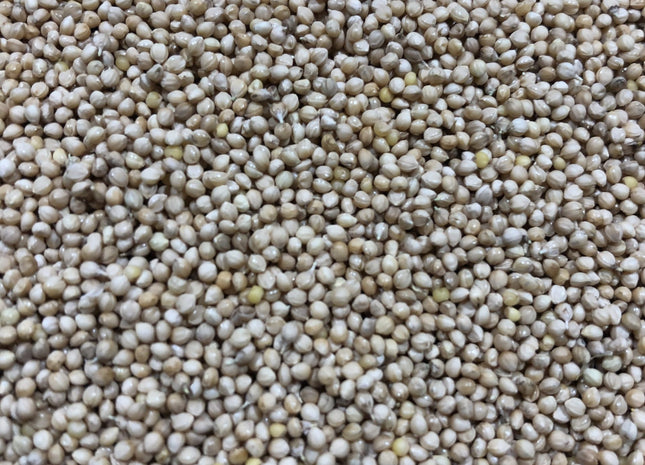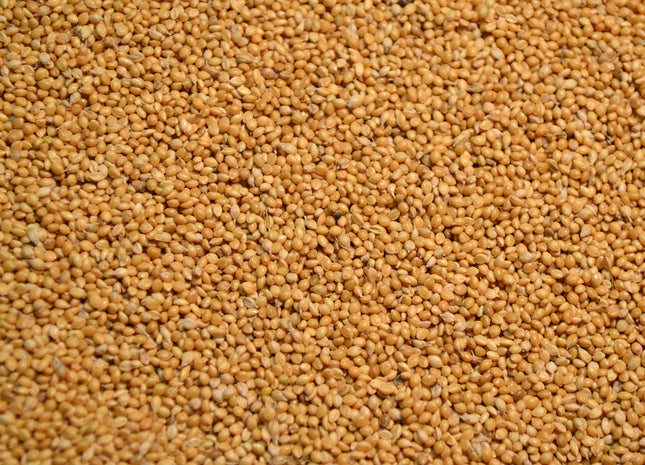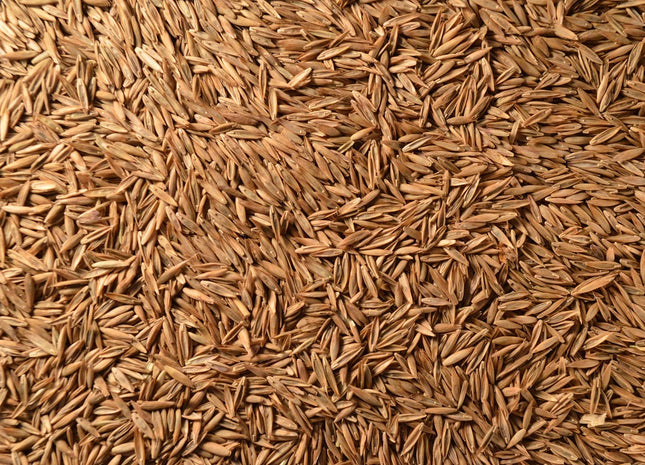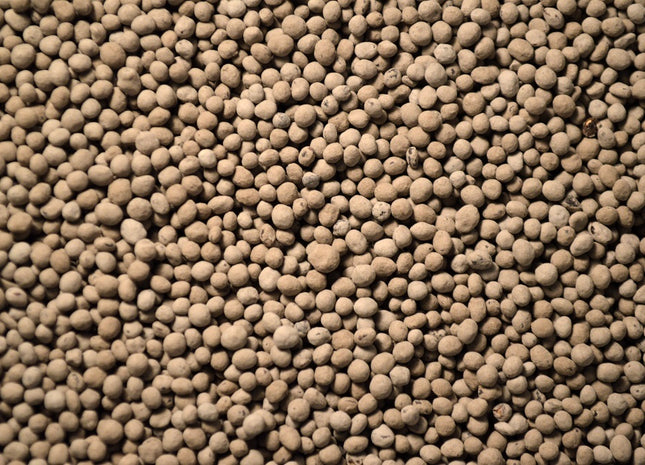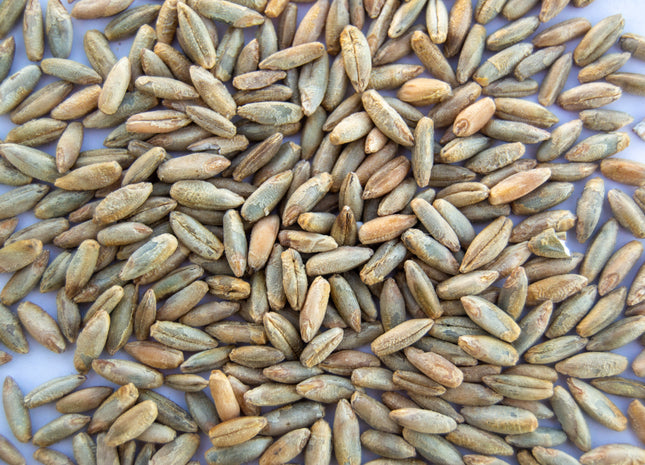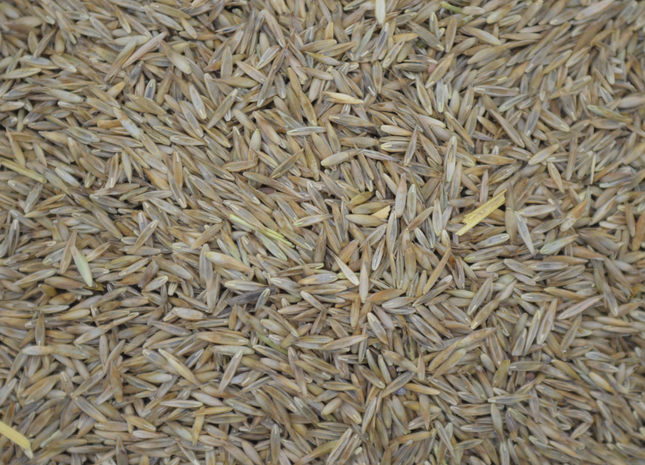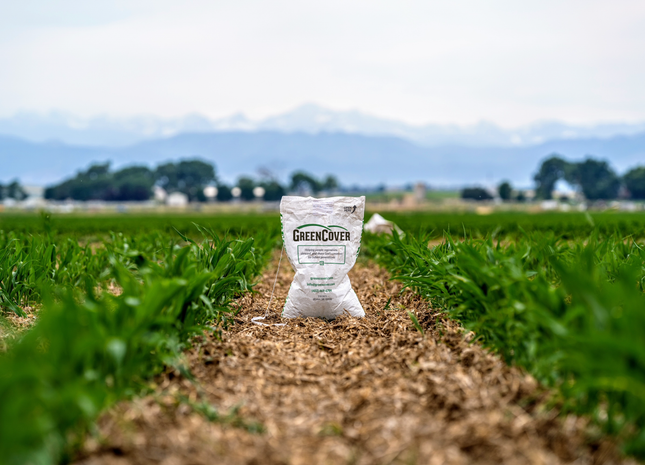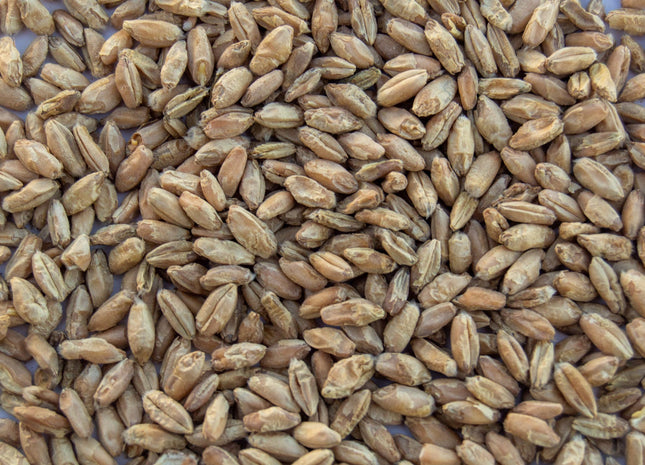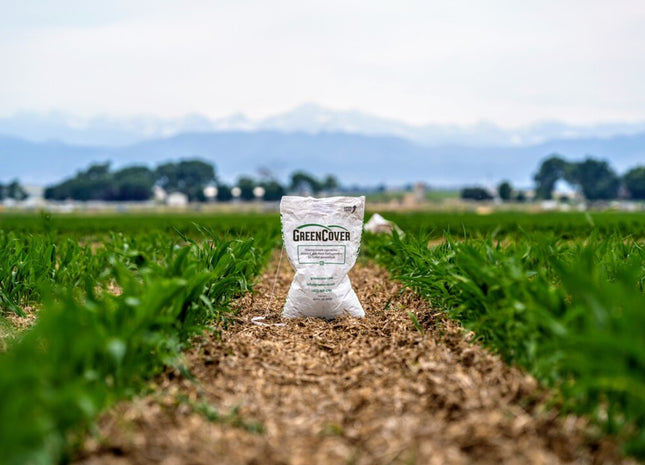Browse our extensive lineup of monoculture cover crop seeds.
Looking for a diverse cover crop mix? Browse Pre-Made Mixes or Food Plots.
Single Species Seed

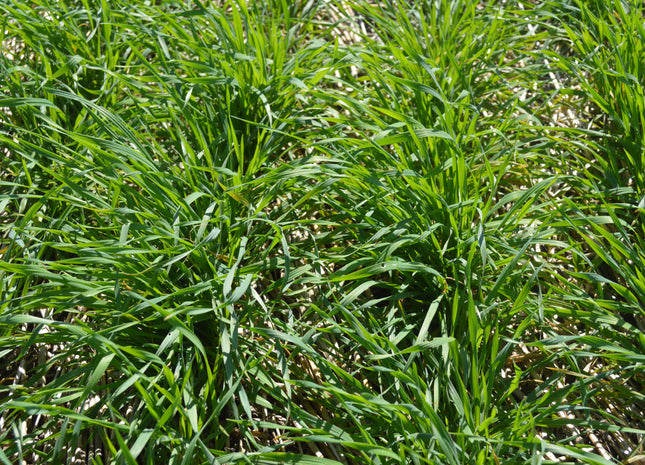
Cereal Rye (Elbon)
Cereal Rye has an excellent fibrous root system that alleviates surface compaction. Rye can be successful planted later then almost any other cover crop due to its low germination and growth temperature requirements. Cereal rye is known for being the best cereal crop at retaining residual N. It's typical for a fall planted cereal rye crop to scavenge on average 25 to 50 lbs of N, with cases scavenging in excess of 100 lbs of N. The vigorous spring growth has successful weed suppression through competition and allelopathic chemicals. Rye can be terminated in the spring through the alternative methods of rolling, mowing, or crimping after boot stage. Rye will out yield any other cereal crops when planted in droughty, infertile, or sandy soils.
from $0.24 per lb

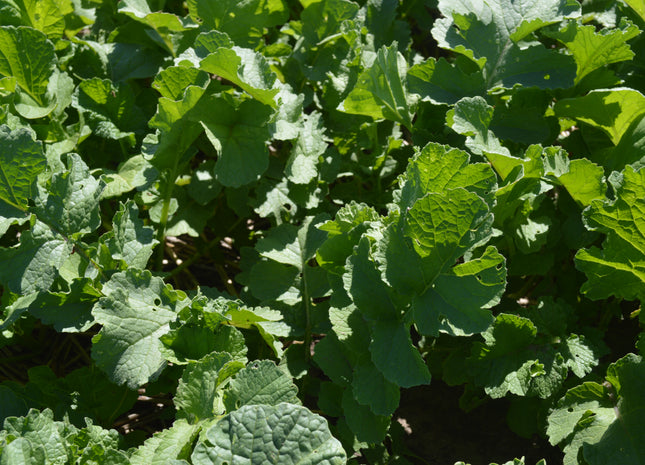
Radish (Nitro)
Rapid fall growth in short windows allows radishes to fit perfectly into a traditional corn and soybean rotation. Radish residue breaks down very quickly in the spring leaving a clean seed bed. The residue has been proven to inhibit small seeded annuals from germinating. Nutrients that were scavenged are readily released back into the soil for the subsequent crop. A field planted in radishes, will allow the soil to dry and warm faster in the spring. The large root channel left behind is rich in nutrients. It allows tremendous water infiltration and reduces water erosion by creating a path for crops roots to follow through compacted soil layers. During decomposition radish biofumigates the soil which can reduce pest and nematode populations.
from $1.55 per lb

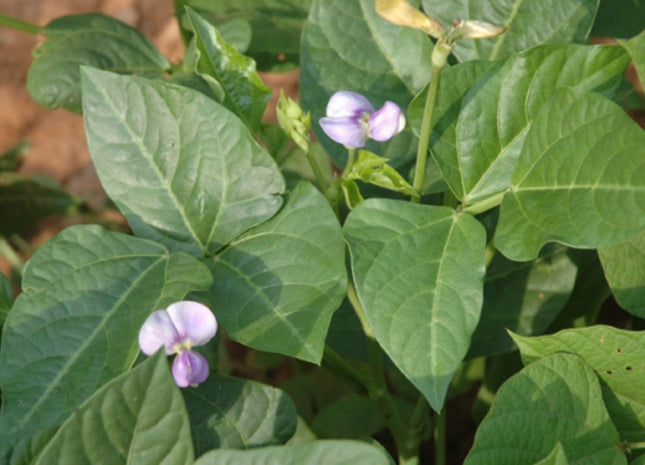
Cowpeas (Iron & Clay)
Cowpeas are one of the most popular warm season legumes. They love the heat, they tolerate drought, and they offer nitrogen fixation in a soil building mix, or higher protein in an annual grazing mix. The Iron & Clay have a long maturity which means when they are planted at the beginning of summer, they can achieve a lot of growth before temperatures cool down into fall. These cowpeas are also very viny so they will climb on other plants if planted in a mix.
from $1.21 per lb

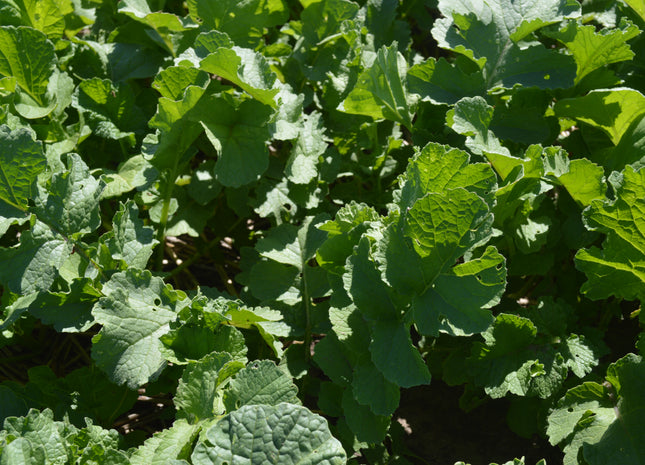
Radish (Smart)
Green Cover Seed is proud to market the all new Smart Radish. It is bred specifically for the cover crop and soil health market with more lateral roots to help it grow further into the soil profile without heaving upward when it hits a compaction layer. The variety has a trait for higher plant tillering to provide more leaf area and higher plant biomass than many other radish options for forage, soil, cover and green manure. Larger leaves mean more solar collection area to harvest the sun’s energy, and the smoother leaf means it’s better for forage and grazing.
from $3.60 per lb

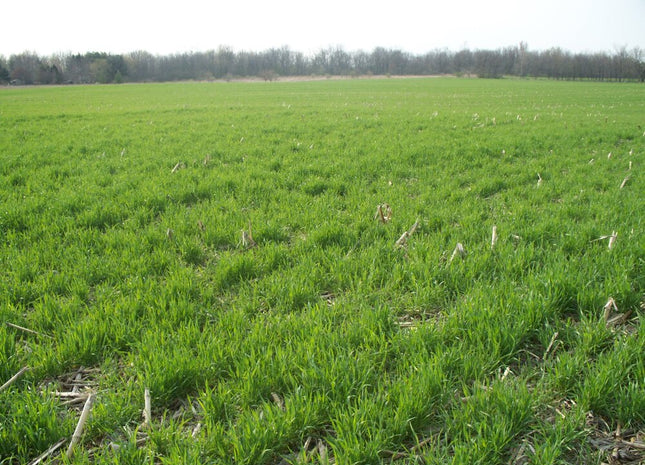
Cereal Rye (Hazlet)
Cereal Rye has an excellent fibrous root system that alleviates surface compaction. Rye can be successful planted later then almost any other cover crop due to its low germination and growth temperature requirements. Cereal rye is known for being the best cereal crop at retaining residual N. It's typical for a fall planted cereal rye crop to scavenge on average 25 to 50 lbs of N, with cases scavenging in excess of 100 lbs of N. The vigorous spring growth has successful weed suppression through competition and allelopathic chemicals. Rye can be terminated in the spring through the alternative methods of rolling, mowing, or crimping after boot stage. Rye will out yield any other cereal crops when planted in droughty, infertile, or sandy soils.
from $0.24 per lb

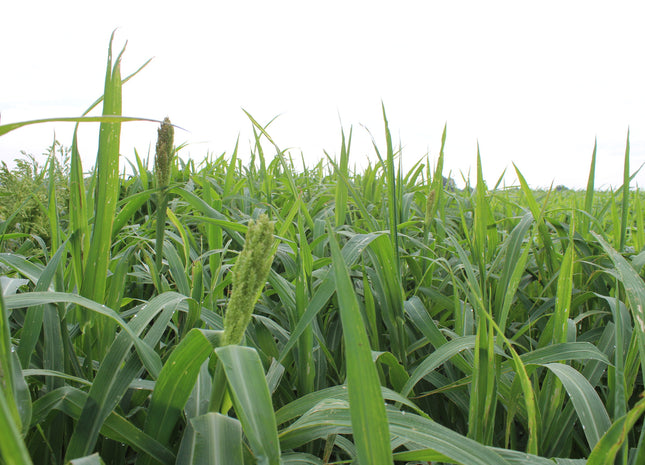
Japanese Millet
Japanese millet, known for its quick maturity, usually offers a lower forage yield compared to other millet varieties. However, it stands out for its superior post-maturity palatability when compared to foxtail millet and its impressive regrowth capabilities. Additionally, Japanese millet exhibits remarkable resilience to waterlogged soils, thriving even in standing water, making it a valuable choice for enhancing duck habitat and nourishment in food plots.
from $0.90 per lb

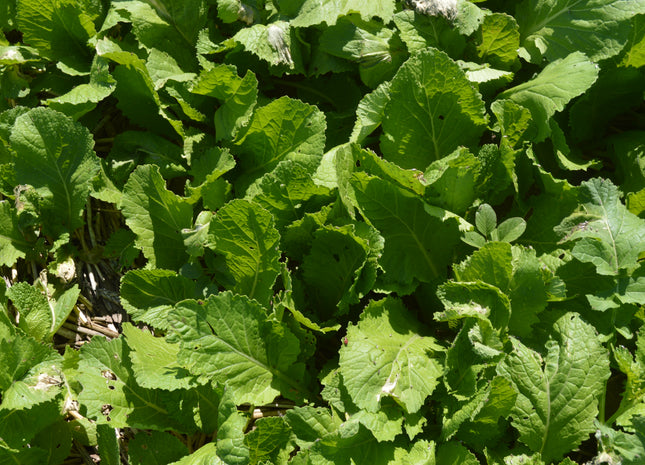
Florida Broadleaf Mustard
Florida broadleaf mustard is an excellent option for grazing mixes. With great palatability and high nutrient content, this mustard will keep your livestock coming back for more. Florida broadleaf mustard is also known for its ability to be utilized as a natural dewormer in grazing systems.
from $1.45 per lb

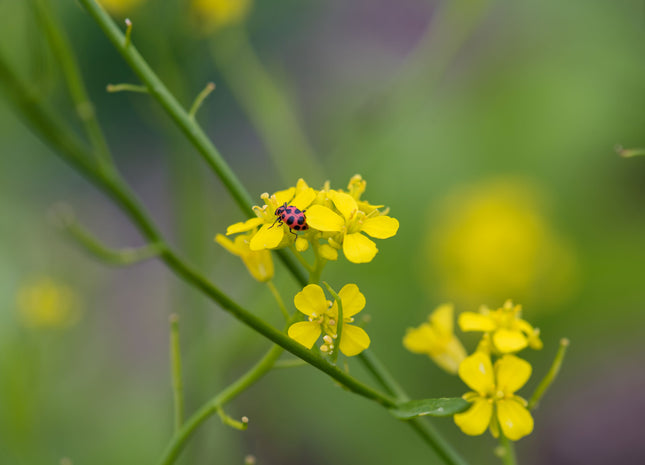
Brown Mustard (Kodiak)
Mustard produces significantly more glucosinolates than other brassicas, which biofumigates the soil during decomposition, proving to be toxic to many soil pathogens and pests. To best utilize these glucosinolates, mature green vegetation should be turned into the soil. In no-till operations you will still benefit from having this species for this use. When allowed enough growing season, brown mustard stem residue can remain erect throughout the winter months and aid in capturing snow to help build moisture in the soil profile. Growing mustard in a potato rotation was observed to increase tuber quality and yields similar to that of chemically fumigated fields. Other documented effects of having mustard in your rotation is suppressing potato early dying and reduced root rot in pea rotations. Some customers are concerned that these mustards are difficult to control like their wild cousins but actually they can be easily terminated with many commonly utilized herbicides.
from $2.50 per lb

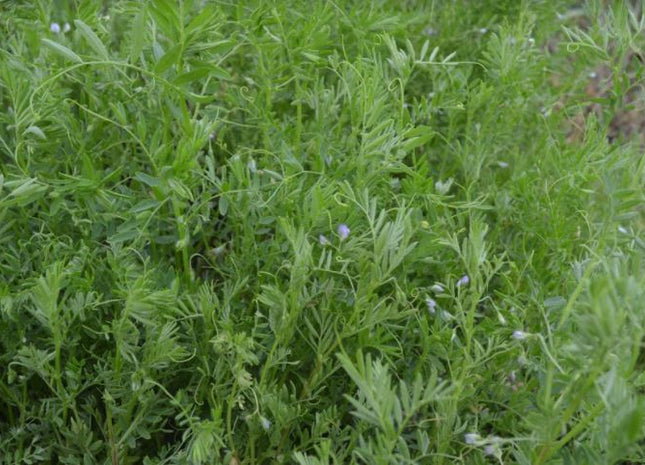
Spring Lentil (Crimson)
Lentils thrive in cool, dry conditions where they can remain relatively free of disease, hence they are commonly grown in the northern Great Plains. With a shallow rooting structure that doesn't have the ability to reach subsoil moisture, lentils are a great option in front of cereals or deep rooting crops. If excessive moisture is present during the growing season it will delay plant maturity. This will be excellent for producers who want to plant a summer fallow mixture where the mix can continue to grow under ideal conditions. Lentils are known for their ability to emerge through thick cereal stubble due to their strong seedling vigor. With rapid seed germination, seedlings generally out grow the threat of insects or disease pressure during establishment. Lentils can also house mycorrhizal fungi. Mature lentil straw can be an option for feed as it is much higher in crude protein, digestibility and palatability when compared to cereal straws.
from $1.90 per lb

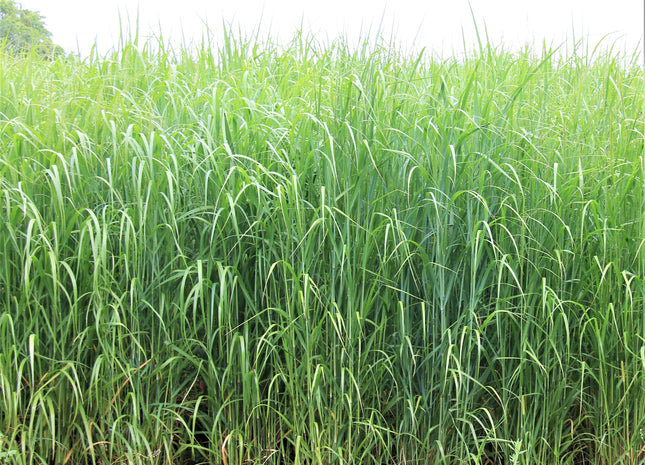
Switchgrass (RC Big Rock)
RC Big Rock Switchgrass is a new late season variety of upland switchgrass developed from Cave-in-Rock. This is a native perennial warm season grass that is extremely productive, reaching 8 feet tall on the best soils of the Midwest. It also establishes faster than most native grasses because it has larger seeds with reduced dormancy and more seedling vigor. RC Big Rock can grow 2 ft tall in 2 months in the seeding year. This is a multi-purpose variety to be used for wildlife habitat, soil conservation, and forage throughout the greater Midwest where annual rainfall averages 30-50”.
from $16.55 per lb

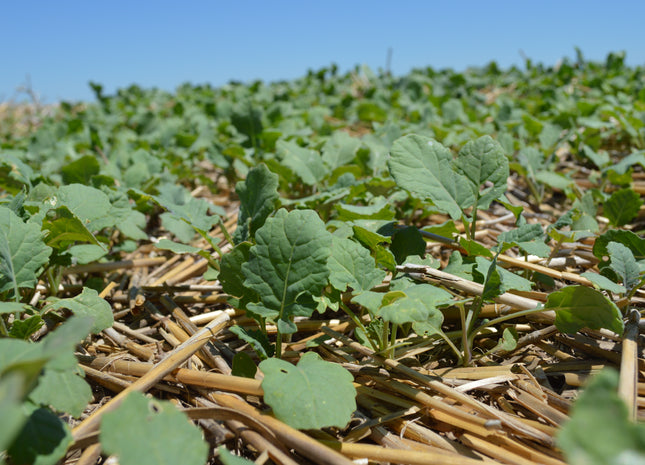
Siberian Kale
Siberian kale, like many other brassicas, are a great addition to a variety of mixes. The deep taproots allow the plant to access nutrients and water deep in the soil profile. The wide leaf and good palatability of kale works great in grazing mixes for livestock. A good cold tolerant brassica can last deep into the fall for good fall and early winter grazing.
from $2.50 per lb

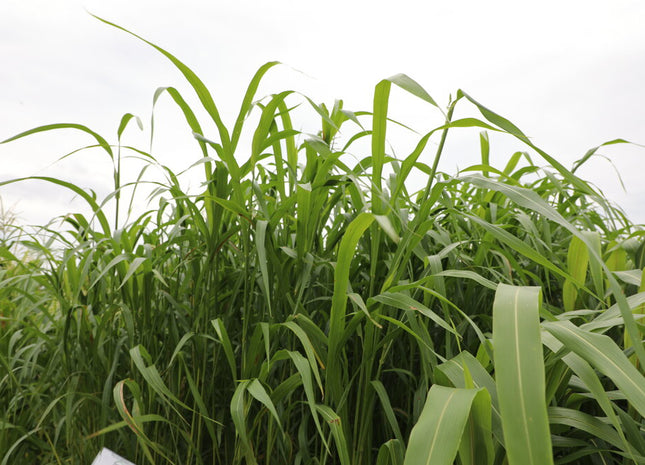
Sudangrass (Piper)
Sudangrass is a super fast growing, fine stemmed, warm season annual grass. If summer weed suppression is your goal, this would be one of the best species to accomplish that. Sudangrass is commonly crossed with sorghum to make sorghum-sudan which takes the fast, tall growing, fine stemmed traits of sudangrass and combines it with the wider leaf and oftentimes higher forage quality of sorghum.
from $1.41 per lb

Triticale (SY TF 813 Triticale) - PVP
This product cannot be shipped to AZ or CA. 813 is a winter triticale variety adapted to the Southern and Central Great Plains. This triticale is awnletted meaning it has very short beards. 813 is a medium maturity, rust and wheat streak mosaic tolerant variety. It should be used for forage production and is known for excellent silage yields.
from $0.32 per lb

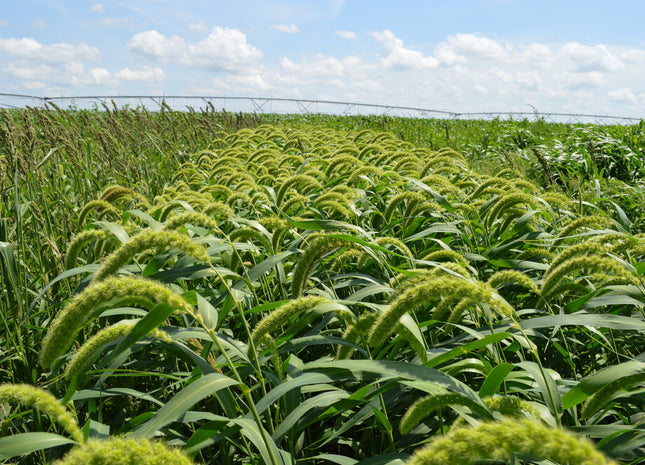
Foxtail Millet (White Wonder)
White wonder foxtail millet is used primarily for hay production. The stem is not as fine as Golden German Millet but it will get taller in height, approximately three feet, given adequate moisture. Expect to cut hay in approximately 50-55 days after planting. Windrow when heads begin emerging from the boot. Foxtail millet is also a great addition to summer grazing or wildlife mixes.
from $0.80 per lb

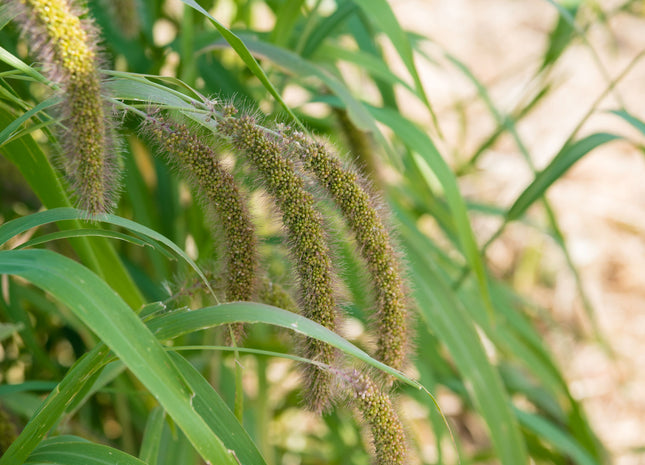
German Millet (Golden)
German millet is a warm season grass that can be planted earlier than sorghum sudan or pearl millet. Though it is not as productive as the aforementioned grasses, german millet makes a cost effective hay crop, ready for cutting about 55-60 days after planting. It does not have good regrowth which lends itself well to establishing the next crop without lingering competition after haying occurs.
from $0.75 per lb

Tall Fescue (Estancia) - Arkshield Coated
Estancia is an erect leaf tall fescue that works great for winter stockpiling and has very good drought tolerance. This grass maintains superior quality throughout the winter, often holding over 14% protein and above 70% digestibility. This grass also provides excellent forage for the spring and fall and will not pose any problems with endophyte toxicity. The novel or “friendly” endophyte in Estancia allows the grass to maintain a high level of toughness, but will not be toxic to livestock.
from $4.05 per lb

Subterranean Clover
Subterranean clover is an excellent addition to any perennial pasture mix. With it's excellent reseeding ability, even under heavy grazing pressure, this annual clover will persist for many years. The bulk of its growth occurs in mid-spring. It is tolerant of shade and low fertility. Use subterranean clover to add diversity to pastures, for weed suppression in gardens and in any other situation that requires a low growing legume.
from $4.60 per lb

Organic Cereal Rye (Cardinal)
Notice: This product may NOT be used for grain production, seed production, or mechanically harvested forage. Cereal Rye has an excellent fibrous root system that alleviates surface compaction. Rye can be successful planted later then almost any other cover crop due to its low germination and growth temperature requirements. Cereal rye is known for being the best cereal crop at retaining residual N. It's typical for a fall planted cereal rye crop to scavenge on average 25 to 50 lbs of N, with cases scavenging in excess of 100 lbs of N. The vigorous spring growth has successful weed suppression through competition and allelopathic chemicals. Rye can be terminated in the spring through the alternative methods of rolling, mowing, or crimping after boot stage. Rye will out yield any other cereal crops when planted in droughty, infertile, or sandy soils.
from $0.36 per lb

Tall Fescue (Teton II)
Teton II Tall Fescue is a high yielding, endophyte-free tall fescue variety suited for a multitude of environments. This tall fescue is deep-rooted, medium maturity, with excellent heat and drought tolerance. Learn more about Teton II Tall Fescue here.
from $5.10 per lb

Cereal Rye (Cardinal)
Notice: This product may NOT be used for grain production, seed production, or mechanically harvested forage. Rye has an excellent fibrous root system that alleviates surface compaction. Rye can be successful planted later then almost any other cover crop due to its low germination and growth temperature requirements. Cereal rye is known for being the best cereal crop at retaining residual N. It's typical for a fall planted cereal rye crop to scavenge on average 25 to 50 lbs of N, with cases scavenging in excess of 100 lbs of N. The vigorous spring growth has successful weed suppression through competition and allelopathic chemicals. Rye can be terminated in the spring through the alternative methods of rolling, mowing, or crimping after boot stage. Rye will out yield any other cereal crops when planted in droughty, infertile, or sandy soils.
from $0.24 per lb

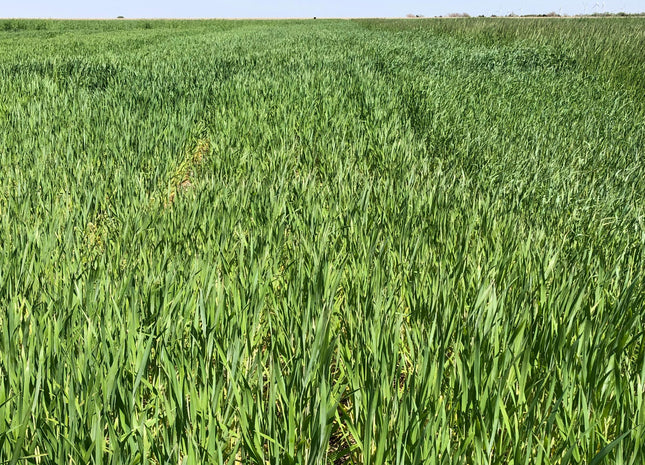
Triticale (Forage FX 1001 Triticale) - PVP
Forage FX 1001 Triticale is a beardless, high-yielding forage triticale which can produce great tonnage on dryland acres. Forage FX 1001 is also the most cold tolerant triticale we offer. The reduced awn expression makes this variety an excellent option for grazing or haying. With excellent forage yield potentials this variety gives you the tonnage and the quality you are looking for. Forage FX 1001 is known to produce high amounts of forage even in low rainfall environments such as the western Great Plains regions.
from $0.32 per lb
- Out of Stock

Non-GMO Soybeans (KS5120NS)
These non-GMO soybeans are an excellent addition to a summer grazing crop, a post-small grain nitrogen fixing crop, or as a food plot for wildlife. It's a group 5 bean with indeterminate growth habit so the forage production potential is very high. This is a great, high protein forage for livestock.
from $1.00 per lb

Grazing Popcorn (Non-GMO)
This Non-GMO Grazing Popcorn is an excellent product for summer and fall grazing mixes as well as stockpile grazing mixes. Because corn tolerates cooler nights better than sorghum products, this is a great option for late summer planted grazing mixes. This seed is quite a bit smaller than the BMR corns so it stays in mixes and goes through a drill better than the larger BMR corn. While it doesn't contain the BMR trait which contributes to palatability, it is a better grazing corn compared to regular field corn and it will stand through the winter better than the BMR varieties.
from $0.75 per lb


German Millet (Strain R)
German millet is a warm season grass that can be planted earlier than sorghum sudan or pearl millet. Though it is not as productive as the aforementioned grasses, german millet makes a cost effective hay crop, ready for cutting about 55-60 days after planting. It does not have good regrowth which lends itself well to establishing the next crop without lingering competition after haying occurs.
from $0.90 per lb


Organic Elbon Cereal Rye
Note: This product is certified organic. Cereal Rye has an excellent fibrous root system that alleviates surface compaction. Rye can be successful planted later then almost any other cover crop due to its low germination and growth temperature requirements. Cereal rye is known for being the best cereal crop at retaining residual N. It's typical for a fall planted cereal rye crop to scavenge on average 25 to 50 lbs of N, with cases scavenging in excess of 100 lbs of N. The vigorous spring growth has successful weed suppression through competition and allelopathic chemicals. Rye can be terminated in the spring through the alternative methods of rolling, mowing, or crimping after boot stage. Rye will out yield any other cereal crops when planted in droughty, infertile, or sandy soils.
from $0.42 per lb
- Out of Stock


Organic Radish: Tap Master
Note: This product is certified organic. Rapid fall growth in short windows, allows radishes to fit perfectly into a traditional corn and soybean rotation. Radish residue breaks down very quickly in the spring, leaving a clean seed bed until early April. The residue has been proven to inhibit small seeded annuals from germinating. Nutrients that were scavenged are readily released back into the soil for the subsequent crop. A field planted in radishes, will allow the soil to dry and warm faster in the spring. The large root channel left behind is rich in nutrients, allows tremendous water infiltration, reduces water erosion, and a path for crops roots to follow through compacted soil layers. During decomposition, radish biofumigates the soil which can reduce pest and nematode populations.
from $2.80 per lb
- Out of Stock


Organic Radish
Note: This product is certified organic. Rapid fall growth in short windows, allows radishes to fit perfectly into a traditional corn and soybean rotation. Radish residue breaks down very quickly in the spring, leaving a clean seed bed until early April. The residue has been proven to inhibit small seeded annuals from germinating. Nutrients that were scavenged are readily released back into the soil for the subsequent crop. A field planted in radishes, will allow the soil to dry and warm faster in the spring. The large root channel left behind is rich in nutrients, allows tremendous water infiltration, reduces water erosion, and a path for crops roots to follow through compacted soil layers. During decomposition, radish biofumigates the soil which can reduce pest and nematode populations.
from $3.07 per lb
- Out of Stock


Organic Hazlet Cereal Rye
Note: This product is certified organic. Cereal Rye has an excellent fibrous root system that alleviates surface compaction. Rye can be successful planted later then almost any other cover crop due to its low germination and growth temperature requirements. Cereal rye is known for being the best cereal crop at retaining residual N. It's typical for a fall planted cereal rye crop to scavenge on average 25 to 50 lbs of N, with cases scavenging in excess of 100 lbs of N. The vigorous spring growth has successful weed suppression through competition and allelopathic chemicals. Rye can be terminated in the spring through the alternative methods of rolling, mowing, or crimping after boot stage. Rye will out yield any other cereal crops when planted in droughty, infertile, or sandy soils.
from $0.36 per lb

